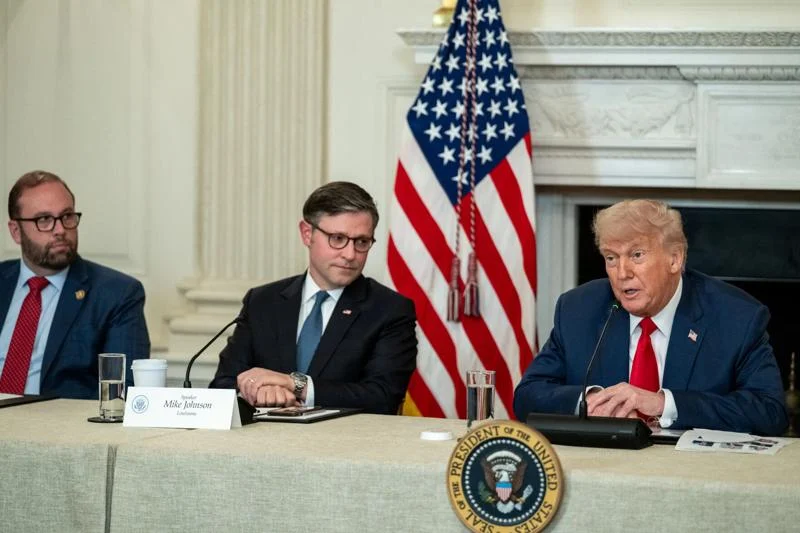Republican leaders are racing to pass the Trump-endorsed One Big Beautiful Bill Act by Independence Day, but more than a dozen GOP members of Congress still harbor major concerns that could tank the giant package.
The House-passed OBBBA, a multitrillion-dollar budget reconciliation bill implementing President Donald Trump’s major policy priorities, has undergone Senate committee revisions and is currently under the Senate parliamentarian’s review.
House Speaker Mike Johnson, R-La., made a variety of delicate compromises to placate Republican factions in his chamber, narrowly passing the bill in May after months of assembling it.
Johnson helped accelerate the phaseout of Inflation Reduction Act subsidies and reform entitlement programs like Medicaid and SNAP to help offset the bill’s 10-year extension of the 2017 Tax Cuts and Jobs Act. The bill’s total of $1.7 trillion in spending cuts won over enough fiscal hawks — including Reps. Chip Roy, R-Texas; Ralph Norman, R-S.C.; Andrew Clyde, R-Ga.; and Josh Brecheen, R-Okla.; — for the bill to pass.
The speaker also compromised with Blue-state Republicans who wanted a higher state and local tax (SALT) deduction cap, settling on a $40,000 cap to place New York Reps. Rep. Mike Lawler, Nick LaLota, Andrew Garbarino and Elise Stefanik.
But, as The Center Square reported, Senate committees have either significantly scaled back or completely removed those very compromises in their revisions to the bill, alienating not only those lawmakers but also some in their own chamber.
Among other things, Senate committees increased the House’s $4 trillion debt ceiling raise to $5 trillion, extended most TCJA tax provisions permanently rather than for 10 years only, and dramatically slowed the phaseouts of energy-related IRA subsidies.
They also lowered the House’s hiked tax on university endowments, axed its tax on private foundations, softened its work requirements for Medicaid, and reduced fiscal penalties on states with high SNAP payment error rates.
These changes infuriated fiscal hawks in both the House and the Senate, with all four in the House who flipped, plus Rep. Thomas Massie, R-Ky., pledging not to vote for the bill again if the Senate passes it.
Additionally, Senate committees completely killed the House’s SALT provisions, losing the support of the four House members from New York, who are still hopeful for a future compromise but would also not support the bill when or if it returns to the lower chamber.
But the bill may not even pass the Senate, even though budget reconciliation rules require only a majority vote, because Sens. Ron Johnson, R-Wis., and Rand Paul, R-Ky., have decried the spending changes as well.
Other GOP senators — including Sens. Josh Hawley, R-Mo., Lisa Murkowski, R-Alaska, and Jim Justice, R-W.Va., — have said they have “major concerns” with the Senate version lowering the House’s 6% Medicaid provider tax cap to 3.5%, potentially impacting rural hospitals.
Johnson and Senate leaders are continuing to hold closed-door negotiations with holdouts in both chambers, and the Senate parliamentarian might rule out some of the more controversial changes if they violate the Byrd Rule.






